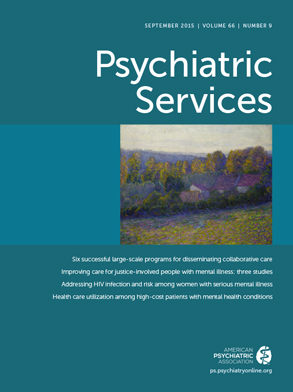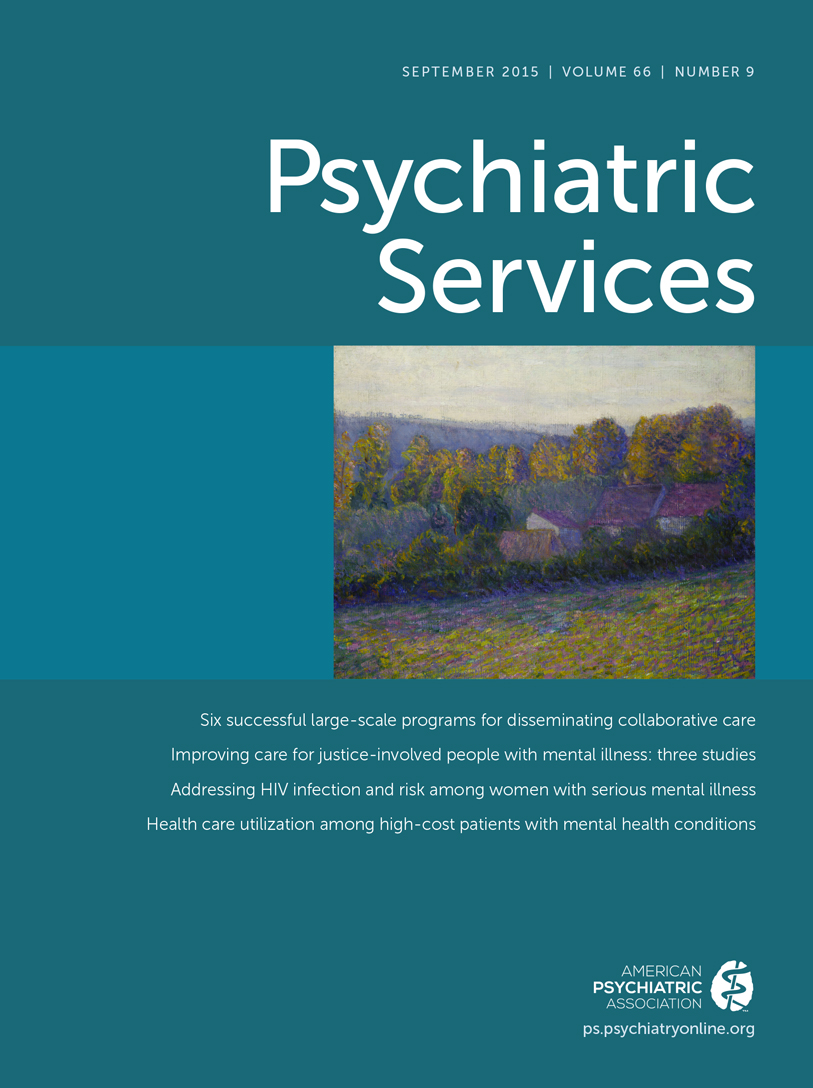There are several reasons for the underutilization of mental health services by veterans with posttraumatic stress disorder (PTSD) who have served in recent conflicts in Iraq and Afghanistan (Operation Enduring Freedom, Operation Iraqi Freedom, and Operation New Dawn [OEF/OIF/OND]). In general, veterans are less likely than nonveterans to perceive their overall health care experiences as being positive. Factors cited in the literature relevant to mental health services include “concerns about treatment,” “emotional readiness for treatment,” “stigma,” and “logistical issues.” Veterans have also expressed concern that professional providers will not understand them and that only other war veterans can comprehend what they have gone through. There is a need for innovative interventions that can better engage OEF/OIF/OND veterans with PTSD in mental health services.
Recruiting peer support providers to provide focused outreach to veterans with PTSD may represent such innovation. A peer support provider is someone who has personal experience with mental illness—with PTSD in this case—and, having attained significant improvements in his or her own condition, offers formal services and support to peers considered to be not as far along in their own recovery process. We hypothesized that peer support providers could play a key role in providing outreach telephone services to veterans with PTSD who were not currently engaged in mental health services. It was anticipated that the peer support provider would, via telephone, self-disclose regarding personal experiences with PTSD; focus on skills, strengths, supports, and resources used in his or her own recovery; address concerns and dispel misperceptions regarding treatment; and encourage the veteran to engage with mental health services.
In May 2013, we designed and implemented such a peer support telephone outreach intervention. Peer support providers who were members of the mental health team and were veterans with lived experience of PTSD conducted the intervention. Outreach was targeted toward a subpopulation of veterans known to have PTSD but who were identified, from facility databases, as not receiving sufficient mental health care for this disorder. Peer support providers encouraged the veterans they were calling to come to peer support groups that they themselves were leading, and hence the call served as a warm and personalized introduction to the group.
An outreach effort was defined as successful if a peer support provider reached a veteran by phone and had a conversation that resulted in the veteran’s expressing an interest in attending a peer support group at his or her local Veterans Affairs mental health care clinic. A peer support provider attempted to contact each veteran five times by phone (on five separate times and days) and left voice messages when this was an option. If a veteran had not responded after these five attempts, no further outreach efforts were made.
Of the 143 veterans identified as being eligible for the intervention, 82 (57%) were successfully contacted, 39 (27%) did not answer their phone or return the messages left for them, 20 (14%) had an incorrect or nonworking number, and two (<1%) were already enrolled in a peer support group. Of those successfully contacted, 43 agreed to come to a group, with 29 indicating a specific date or time they would attend. Of those who agreed to attend a group, 19 actually attended. Veterans appeared more likely to attend a group if they had committed to a specific date and time (14 of 19 group attendees). Although only 19 attended groups, 15 additional veterans were engaged via continued telephone contact. Of the 19 who attended groups, 12 veterans attended more than five groups, eight attended more than ten groups, and four attended more than 15 groups.
Preliminary data suggest that implementing a peer support telephone outreach intervention for veterans with PTSD is feasible. Even though only 23% of veterans contacted ultimately engaged in the peer support groups, we note that this subpopulation of veterans was receiving no other mental health care. Historically, veterans with PTSD have been disengaged from such services. Furthermore, this telephone outreach was a time-intensive process, and staffing via peer support providers, as opposed to professional staff, has potential as a cost-effective strategy to deploy outreach efforts. Further investigation is needed to elucidate whether such an intervention has the capacity to improve actual outcomes of care for veterans with PTSD.

